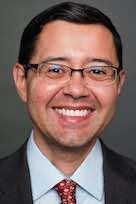Oscar Fernandez, Portland State University – Disrupting Trauma Tourism in Diversity Workshops and Scholarship Essays
 Sharing traumatic stories can increase awareness and charitable giving, but does it always help those afflicted?
Sharing traumatic stories can increase awareness and charitable giving, but does it always help those afflicted?
Oscar Fernandez, senior instructor in university studies at Portland State University, finds out.
Dr. Óscar Fernández works at Portland State University. He is an immigrant scholar from Costa Rica. He specializes in inter-American studies, literary theory, and the intersection of culture, sexuality, and representations of disease in Iberoamerican literature. His published work appears in Comparative Literature Studies, Oregon Literary Review, the Journal of General Education: A Curricular Commons of the Humanities and Sciences, Textbook & Academic Authors Association’s book—Guide to Making Time to Write—, PMLA (Publications of the Modern Language Association), and Routledge’s Global South Scholars in the Western Academy. He earned a Ph.D. in Comparative Literature from The Pennsylvania State University.
Disrupting Trauma Tourism in Diversity Workshops and Scholarship Essays
We all have seen these TV commercials: Adults and children in precarious conditions peering into cameras while a voice-over asks for our monetary support. When scholars critique the exploitation of such traumatic conditions, they generally focus on international development agencies that advertise traumatic stories and historical sites of violence to increase charitable giving. However, our study explored how such exploitation strategies are extended to higher education institutions. Queer, trans, Black, Indigenous students of colour co-authored the study. They described their experiences whenever university-specific diversity workshops and diversity scholarship applications prompted them to recall traumatic stories. Sharing such experiences in workshops is generally considered one way to teach dominant groups about the plight of minoritized peoples. Additionally, sharing traumatic stories is how the co-authors partly funded their university degrees by completing diversity scholarships. The co-authors concluded that diversity workshops and diversity scholarship applications tokenize them and impact them negatively. For example, a co-author explained the impacts in one alarming way:
“What upsets me the most is the essays we are expected to write for scholarships and opportunities to succeed; this concept of selling my ‘sob story’ to get money—without guarantee, I will receive it—is traumatic. [. . .] As I continue with my higher education, I am vigilant about re-telling my story for money all over again.”
This study revealed that trauma tourism exists in higher education’s diversity workshops and scholarships. We concluded that universities need to do more to disrupt the emotional labor that minoritized college students associate with diversity workshops and scholarships. Instead, diversity workshops and scholarship applications need to ask asset-based questions to honor minoritized students’ cultural wealth.


